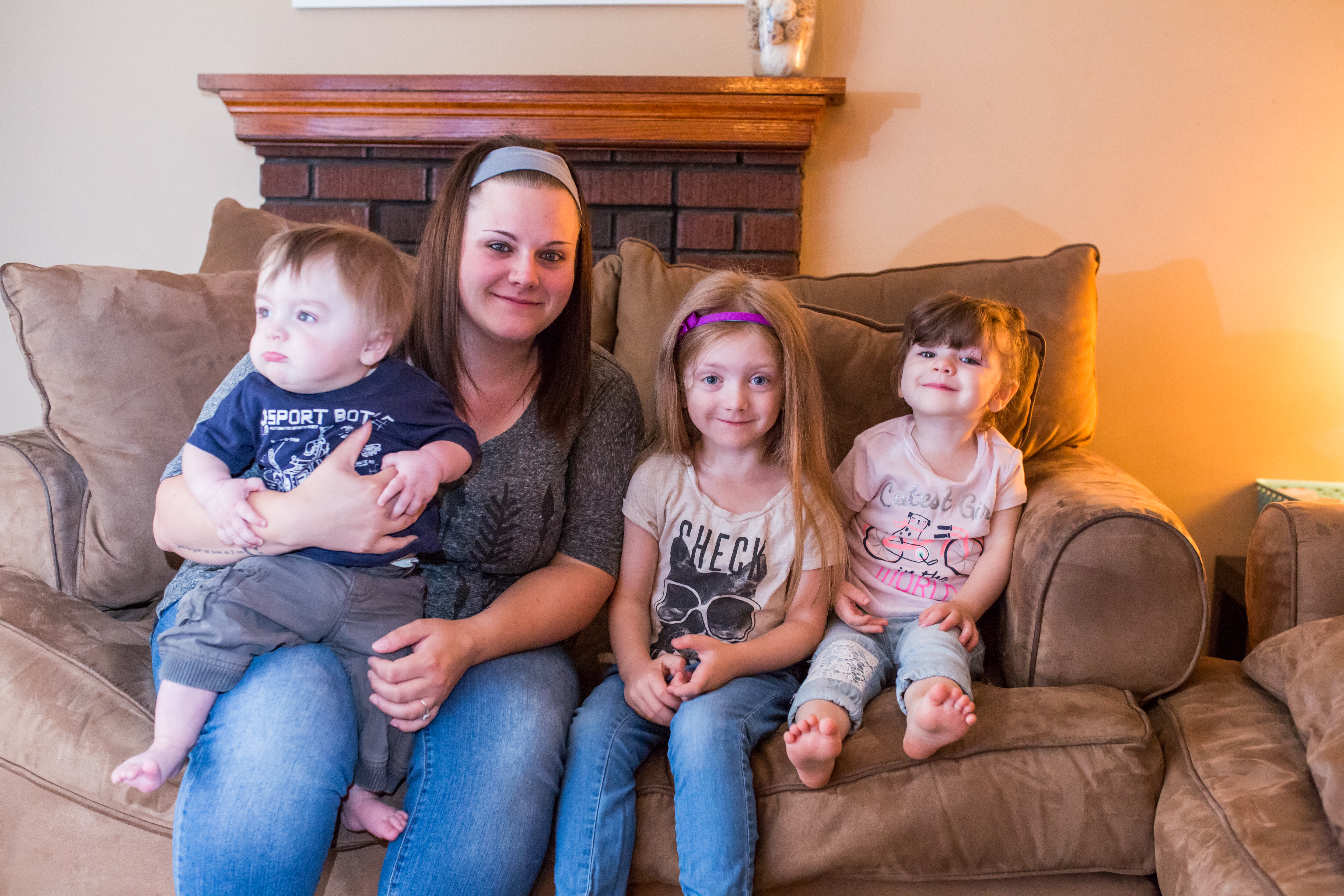
Helping to promote healthy birth weights in Hamilton
Contributing to a community-wide effort
Hamilton Health Sciences (HHS) is trying to improve the way it cares for young mothers and their babies.
As part of the Healthy Birth Weights Coalition—a group of more than 50 community partners, led by City of Hamilton Public Health Services—HHS is adopting strategies and practices to reduce the stigma of young parenthood and provide young parents with the resources they need to deliver and care for healthy babies.
Research by City of Hamilton Public Health Services has shown that certain pockets of the city have much higher rates of low birth weight (LBW) babies. LBW is associated with poor growth, delayed cognitive development and chronic disease later in life. The Coalition aims to reduce rates of LBW by building a common approach across member organizations to improve integration and enhance perinatal supports.
Vanessa Parlette, a health strategy specialist with City of Hamilton Public Health Services, and the lead on this project, says this collaborative model is aimed at making the system easier to navigate for vulnerable populations. “Strengthening the overall system enables us to develop targeted strategies to better support populations with complex social needs that increase the risk of low birth weight,” she says.
Letting young parents be their own voice
Because young mothers are twice as likely to have a LBW baby than older moms with more supports, the Healthy Birth Weights Coalition has developed strategies with and for young parents.
The Coalition has established a team of community researchers and peer mentors who have personal experience navigating pregnancy and parenting as young moms. The young parent community researchers co-facilitated focus groups and storytelling with 88 other young parents to identify and discuss the barriers they encountered to receiving the holistic perinatal care they needed. They identified that stigma was a major barrier to seeking out and following through with medical care and other supports before and after the birth of their babies.

Starting with stigma
Cassandra Mead has lent her voice to this consultation. She is a community researcher and young parent peer support mentor with the Coalition. Cassandra works with a team of peer mentors, helping other young parents navigate the resources available to them and facilitating advocacy groups where they can share their stories.
“I had quite a few nurses say, ‘Wow, you’re really young.’ It felt like assumptions were being made.”
The 26-year old delivered a stillborn baby at McMaster University Medical Centre (MUMC) when she was 19 years old. Since then, she has had three children with her husband, all at MUMC. She says her hospital experiences as a young mother were mixed, and she sometimes felt stigmatized because of her age.
“I had quite a few nurses say, ‘Wow, you’re really young’,” says Mead. “It felt like assumptions were being made.”
She’s heard similar stories from the other young mothers she has mentored. Sometimes, they will hesitate to ask questions or seek out services because they are afraid of being judged.
Feedback from Mead and other young parents has helped to inform a number of initiatives aimed at improving care for young parents, and reducing the number of LBW babies born in Hamilton.
At Hamilton Health Sciences, staff education sessions have been hosted to provide insight into what makes young mothers feel judged or stigmatized and how staff can help them feel supported and comfortable asking questions.
Putting the Coalition’s work into practice at HHS
Alida Bowman, clinical manager of Women’s Reproductive Health and Newborn Care at HHS, says the sessions have helped front-line staff gain a better understanding of the additional stresses young mothers face. By hearing directly from the young women, they have been able to approach future patients with more compassion and support.
The Coalition has also developed a Youth Pregnancy Care Pathway to knit together a comprehensive community of supports. Health care providers are able to reference the Care Pathway for connections with services like mental health programs, prenatal classes, housing, and even employment services.
Since the different providers on the Care Pathway are all part of the Coalition, the referral process is more integrated. “This coalition has allowed us to provide better continuous care to our patients,” says Bowman. “We know they are getting appropriate community supports before and after the birth of their babies.”
“Young parents, research literature, and data are all telling us the same thing –we need a collaborative and comprehensive approach to identifying and addressing gaps.”
The Coalition is constantly evolving as feedback from young parents shapes its strategies. Parlette says this input has been integral to molding the direction of the project. “The young parents involved in the project –through research, storytelling, and advocacy –are passionate about using their voices to tell the stories behind the statistics in order to motivate change,” she says. “Young parents, research literature, and data are all telling us the same thing –we need a collaborative and comprehensive approach to identifying and addressing gaps.”
Mead knows that there is still room for improvement but she’s optimistic about the progress that’s being made. She’s hopeful that the next generation of young parents and babies will receive the stigma-free care they need thanks to the hard work of the Coalition’s members and peer mentors.
